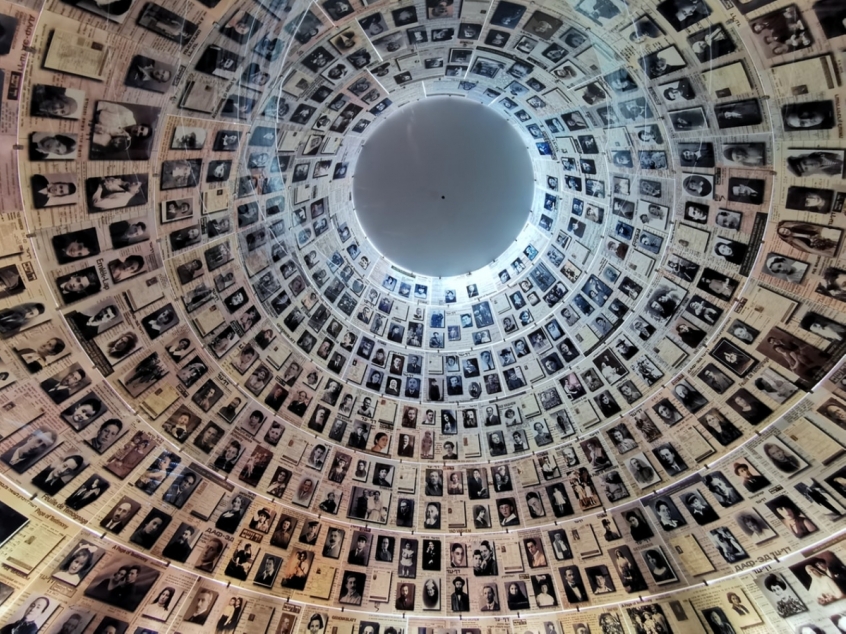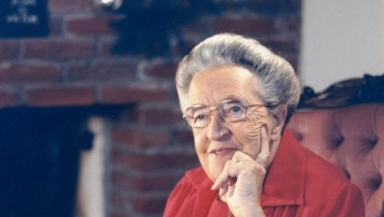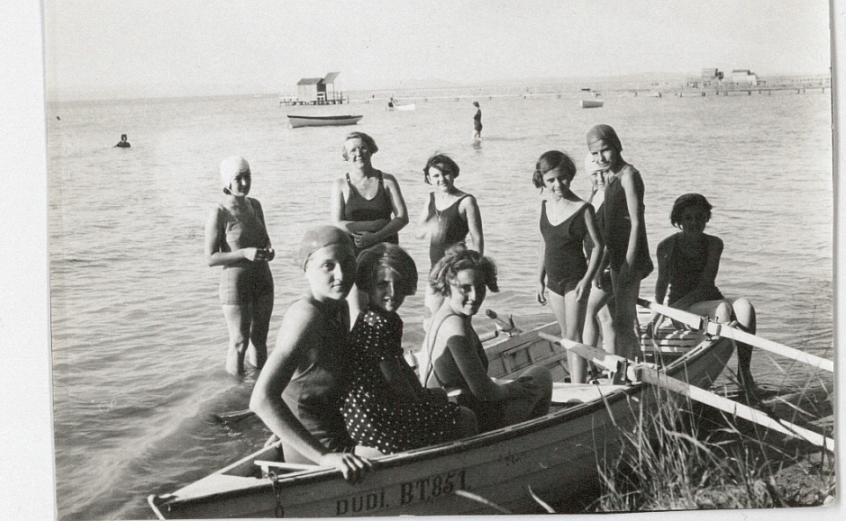
Had it not been for a brave French Christian's actions during World War II, I would almost certainly never have married my wife Karen and have three wonderful children.
My mother-in-law, Mariette, was born in Prague in the 1930s. When the Germans occupied Czechoslovakia in March 1939, her parents as Jews knew they had to try to escape. They managed to get their two children, Mariette and Jean, safely to Paris, but that gave them only temporary respite.
They had only been there a few months when the German Blitzkrieg resulted in the occupation of the northern half of France, and with it the French capital.
Mariette's family now escaped by lorry to the south of France – as yet not occupied by Nazi Germany. There they lived in comparative peace in a tiny village in the Dordogne until they were betrayed and had to live on the run.
Eventually André Girard-Clot, a Christian from Grenoble in the French Alps, came to their aid. He provided fake ID cards and false names, found them a flat to hide in, and told them when police raids were planned.
Had this brave Christian not come to the aid of Mariette's family, they would in all likelihood have been rounded up and shipped off to Eastern Europe, to a death camp such as Auschwitz. For his resistance activities, André was murdered at Mauthausen concentration camp.
Researching this family story awakened me to the brave acts often of isolated individuals that saved many Jews and other oppressed people, including gays and Roma, in the terrible years when the Nazis were attempting systematically to wipe out the Jews of Europe.
This led me on to research and write the stories of other Christians from different countries and a variety of churches and denominations – from Russian Orthodox to Quaker – who counted their own life less important than saving people threatened with imprisonment in concentration camps and extermination in death camps. Many of those who helped save Jews might otherwise never have been heard of.

In my new book, Defying the Holocaust, I have taken a step back and, rather than attempt another survey of the Holocaust, I have chosen to tell the stories of ten or so Christians from a variety of church traditions and denominations, and from different countries, operating in many contrasting situations and with diverse outcomes.
One of these is Elsie Tilney, a missionary from Ipswich. Because she had been working in Paris when the Germans invaded, she was interned at Vittel, France – today a Club Med resort but at that time surrounded by barbed wire.
Many of Elsie's fellow internees were from Western Europe, but Jews from Poland were also sent there before being transported to death camps in the East. Elsie successfully hid a young Polish Jew in her bathroom for months, until the camp was liberated at the end of the War. She is one 'unsung heroine' whose story has only recently come to light.
Much better known is the story of the Dutch Christian, Corrie ten Boom, whose book The Hiding Place recounts how her family concealed Jews and resistance workers in their home in Haarlem during World War II until they were betrayed and arrested. Corrie and her sister Betsie endured the horrors of Ravensbrück concentration camp, where Betsie died. Corrie somehow survived, and while in Ravensbrück did all she could to encourage and support her fellow-prisoners.
I also tell the story of Jane Haining, a Scot who had been caring for Jewish girls at a Church of Scotland boarding school in Budapest, Hungary, attempting to protect them from the terrors of the outside world. The Gestapo arrested her on trumped up charges and Miss Haining was thrown into a cattle truck for transportation to Auschwitz, where she was killed in the gas chamber, guilty only of faithfully looking after Jewish schoolgirls.
Another unlikely rescuer was Don Bruno, a Catholic priest, who before the War had devoted himself to researching the works of early Christian writers. When he saw the perilous situation of Jews in his native Belgium, he abandoned his studies and spent most of the War finding secret hiding-places in monasteries, convents, churches and family homes for hundreds of Jewish children whose parents had been transported to camps in Eastern Europe.
Despite constant danger, Don Bruno was tireless in criss-crossing the country on his bicycle, locating children, taking them to a place of safety, then visiting them to ensure they were well looked after.

With a group of fellow Dutch Christians, Joop Westerweel succeeded in smuggling 200 to 300 Jews across Belgium and France to safety in neutral Switzerland and Spain, but in 1944 was executed by the Nazis. He believed he was obeying Jesus' words in Matthew 10:37–39: "Whoever loves father or mother more than me is not worthy of me; and whoever loves son or daughter more than me is not worthy of me; and whoever does not take up the cross and follow me is not worthy of me. Those who find their life will lose it, and those who lose their life for my sake will find it." (nrsv)
While some Christians chose to stand with suffering Jews, many more chose to look away in silence, knowingly or unknowingly following twenty centuries of anti-Jewish thinking.
Over the course of World War II at least 11 million died in the concentration and death camp system, at least four million of these at Auschwitz-Birkenau alone. The Nazis murdered approximately six million Jews and at least another five million non-Jews. More than a million children were murdered, many newborn or unborn.
So great are the numbers that it can be difficult to comprehend their devastating significance but it is vital that these figures are recorded and remembered, and especially this January – 75 years after the liberation of Auschwitz, at a time when antisemitism is yet again being widely experienced.
Tim Dowley is author of Defying the Holocaust: Ten courageous Christians who supported Jews, out now from SPCK.













